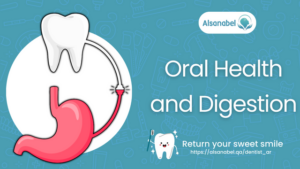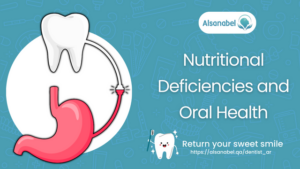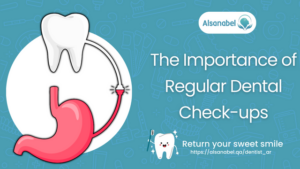Maintaining good dental health is not just about having a radiant smile and fresh breath. It also plays a crucial role in your digestive system. The interplay between dental health and the digestive system is often overlooked, but it is an important aspect of overall health and well-being. In this article, we will provide an overview of this interplay and emphasize the importance of maintaining good oral hygiene for optimal digestive health.
The Interplay between Dental Health and the Digestive System
The digestive system starts with the process of chewing and breaking down food in the mouth. This is where dental health comes into play. Healthy teeth and gums allow for proper chewing and grinding, which is essential for effective digestion. When teeth are damaged or missing, it can lead to difficulty in chewing, resulting in poorly digested food entering the stomach.
Poorly digested food can put a strain on the digestive system, causing discomfort, bloating, and indigestion. The digestive system relies on the teeth to mechanically break down food into smaller particles, making it easier for enzymes and acids in the stomach to further break down and absorb nutrients.
Oral Health and Digestion
Maintaining good oral health is not only important for a beautiful smile, but it also plays a crucial role in the proper functioning of the digestive system. The state of your teeth and gums can have a significant impact on how well your food is broken down and absorbed by the body.

When teeth are healthy and free from decay, they are better equipped to effectively chew food. Proper chewing ensures that food is mechanically broken down into smaller, easily digestible pieces. This initial breakdown of food is essential for the digestive enzymes in the stomach and small intestine to further break down and extract nutrients.
On the other hand, poor dental health, such as cavities or missing teeth, can hinder the chewing process. This can lead to larger food particles entering the digestive system, making it more difficult for the stomach acid and digestive enzymes to access and break down the nutrients efficiently. As a result, the absorption of essential nutrients may be compromised, leading to nutrient deficiencies and overall poor digestion.
Chewing and the role of saliva in digestion
The act of chewing not only breaks food into smaller pieces but also stimulates the production of saliva. Saliva contains important enzymes, such as amylase, that kickstart the digestion of carbohydrates. When food mixes with saliva during chewing, these enzymes begin to break down complex carbohydrates into simple sugars, making digestion easier for the body.
In addition to carbohydrate digestion, saliva also helps moisten food, making it easier to swallow. This ensures that food moves smoothly from the mouth to the esophagus and down the digestive tract. Without sufficient saliva production, individuals may experience difficulties in swallowing and potentially suffer from acid reflux or other digestive disorders.
Maintaining good oral hygiene practices, such as regular brushing and flossing, can help keep your teeth and gums healthy, supporting optimal chewing and saliva production. Additionally, visiting the Best dentists in Qatar regularly for check-ups and cleanings is crucial for identifying and addressing any dental issues that could impact the digestive process.
By recognizing the interplay between dental health and digestion, individuals can prioritize oral hygiene and ensure a healthy, well-functioning digestive system. Taking care of your teeth and gums not only enhances your smile but also contributes to overall well-being by supporting efficient digestion and nutrient absorption.
Dental Problems and Digestive Issues
Maintaining good oral health goes beyond just having a beautiful smile. It also plays a crucial role in the proper functioning of the digestive system. The connection between dental health and digestion lies in the impact that dental problems can have on the breakdown and absorption of food.
Link between poor dental health and digestive disorders
When dental health is compromised, particularly with issues such as cavities or missing teeth, it can hinder the chewing process. Inadequate chewing can result in larger food particles passing through the digestive system, making it more challenging for the stomach acid and digestive enzymes to access and break down the nutrients efficiently. This can lead to poor digestion and absorption of essential nutrients, potentially causing digestive disorders and nutrient deficiencies.
Studies have also found a potential link between gum disease and digestive disorders. The harmful bacteria that cause gum disease can travel through the bloodstream and affect the digestive system. Inflammatory conditions like irritable bowel syndrome (IBS) and Crohn’s disease have been associated with gum disease, highlighting the importance of maintaining good dental health for overall digestive health.
Common dental issues that can affect digestion
Several dental problems can impact the digestive system’s efficiency. Here are some common issues and their potential effects:
- Cavities: Untreated cavities can lead to tooth sensitivity and pain, making it difficult to chew properly. This can result in inadequate food breakdown and subsequent digestion difficulties.
- Missing teeth: Gaps in the dental structure can affect the alignment of the bite, making it challenging to chew food evenly. Improper chewing can impede the digestive process.
- Gum disease: The inflammation and infection caused by gum disease can weaken the gums and bone structure supporting the teeth. This can lead to tooth loss and compromise the ability to chew effectively.
- Dry mouth: Insufficient saliva production, often caused by medications or certain medical conditions, can lead to difficulties in swallowing and hinder the initial stages of digestion.
By recognizing the interplay between dental health and digestion, individuals can prioritize oral hygiene and seek necessary dental treatment to support optimal digestion. Regular dental care specialized center check-ups, proper brushing and flossing techniques, and a balanced diet can all contribute to maintaining good dental health and enhancing overall digestion and nutrient absorption. Remember, a healthy smile leads to a healthy gut!
Gum Disease and Digestive Health
Poor dental health not only impacts the appearance of your smile but can also have far-reaching effects on your overall well-being, including the proper functioning of the digestive system.
Research has shown a potential link between gum disease and digestive disorders, highlighting the importance of maintaining good dental health for optimal digestive health.
Connection between gum disease and digestive problems
When gum disease, also known as periodontal disease, is present, harmful bacteria can enter the bloodstream and affect various parts of the body, including the digestive system. These bacteria can trigger an inflammatory response in the digestive tract, potentially leading to digestive issues such as irritable bowel syndrome (IBS) and Crohn’s disease. Additionally, the systemic inflammation caused by gum disease can increase the risk of developing other chronic conditions, including heart disease and diabetes, which can further affect digestive health.
Effects of chronic gum disease on the digestive system
Chronic gum disease can have several detrimental effects on the digestive system. The inflammation and infection in the gums can weaken the supporting structures of the teeth, leading to tooth loss and compromised chewing ability. This can hinder the breakdown of food and decrease the efficiency of the digestive process. Additionally, the discomfort and pain associated with gum disease can make it difficult to maintain a healthy diet, further impacting digestion and nutrient absorption.
Furthermore, gum disease can also affect the balance of the oral microbiome, which plays a crucial role in overall digestive health. The imbalance of bacteria in the mouth can disrupt the delicate ecosystem of the digestive system, potentially leading to dysbiosis and digestive disorders.
To maintain good digestive health, it is essential to prioritize oral hygiene and seek necessary dental treatment for gum disease. Regular Best dentist Qatar check-ups, proper brushing and flossing techniques, and a balanced diet can all contribute to preventing gum disease and promoting a healthy digestive system.
Nutritional Deficiencies and Oral Health
Poor oral health can have a significant impact on your overall well-being, including the potential for nutrient deficiencies. When dental health is compromised, it can interfere with the proper chewing and digestion of food. This can lead to difficulties in consuming a balanced diet and absorbing essential nutrients.

One of the main reasons poor dental health can contribute to nutrient deficiencies is the difficulty in chewing. When gums are inflamed or teeth are missing or decayed, it can become challenging to properly chew and break down food. As a result, individuals may avoid certain foods that require more chewing or opt for softer, processed options that are less nutrient-dense.
Furthermore, oral health issues such as gum disease can cause pain and discomfort, making it difficult to eat a varied diet. This can lead to a limited intake of fruits, vegetables, and other fibrous foods rich in vitamins and minerals necessary for optimal health. Over time, this restricted diet can contribute to nutrient deficiencies.
The impact of nutrient deficiencies on dental health
On the flip side, nutrient deficiencies can also have a detrimental effect on dental health. Essential nutrients play a crucial role in maintaining healthy teeth and gums. For example, calcium and vitamin D are essential for strong bones, including teeth. A deficiency in these nutrients can weaken the teeth and increase the risk of tooth decay and gum disease.
Vitamin C is another vital nutrient for healthy gums. A deficiency in vitamin C can lead to weakened gum tissue, making it more susceptible to infections and gum disease. Additionally, vitamin B complex, zinc, and iron are essential for maintaining healthy oral tissues and promoting optimal healing.
Overall, poor oral health and nutrient deficiencies have a reciprocal relationship. One can lead to the other, creating a vicious cycle that can negatively impact both oral and overall health. Therefore, it is crucial to prioritize oral hygiene, seek necessary Best dental center in Qatar dental treatment, and consume a balanced diet rich in essential nutrients to maintain optimal oral health and prevent nutrient deficiencies.
By understanding the interplay between oral health and nutrition, individuals can take proactive steps to protect their teeth, gums, and overall well-being. Regular visits to Dental clinic Qatar, proper oral hygiene practices, and a nutrient-rich diet are key components of maintaining a healthy mouth and body.
Maintaining Dental and Digestive Health
Taking care of your oral health is essential not only for a radiant smile but also for supporting a healthy digestive system. Here are some tips to promote good dental hygiene:
- Brush and floss: Brush your teeth at least twice a day and floss daily to remove plaque buildup and food particles that can contribute to tooth decay and gum disease.
- Use fluoride toothpaste: Fluoride helps strengthen tooth enamel and protects against cavities. Choose a toothpaste with fluoride to maintain strong and healthy teeth.
- Visit your dentist regularly: Regular dental check-ups and cleanings are crucial for early detection of any oral health issues and for professional cleaning to remove stubborn plaque and tartar.
- Limit sugary foods and beverages: Sugar feeds the harmful bacteria in your mouth, leading to tooth decay. Limit your consumption of sugary drinks and snacks to protect your teeth.
- Quit smoking: Smoking not only stains your teeth but also increases the risk of gum disease and oral cancer. Quitting smoking will benefit both your oral and overall health.
Healthy eating habits for optimal digestive health
Maintaining a healthy digestive system goes hand in hand with good dental health. Here are some healthy eating habits to support both:
- Eat a balanced diet: Include a variety of fruits, vegetables, whole grains, lean proteins, and healthy fats in your meals. This provides your body with the essential nutrients it needs for proper digestion and overall health.
- Stay hydrated: Drink plenty of water throughout the day to keep your mouth and digestive system hydrated. Water helps with saliva production, which aids in breaking down food particles and maintaining a healthy mouth.
- Chew your food thoroughly: Take your time to chew each bite thoroughly before swallowing. This helps break down food into smaller particles, making it easier for your digestive system to process and absorb nutrients.
- Avoid excessive snacking: Snacking can increase the risk of tooth decay, especially if you consume sugary or acidic snacks. Try to limit snacking between meals and choose healthier options like fruits or nuts.
- Manage stress: Chronic stress can negatively impact both dental and digestive health. Find healthy ways to manage stress, such as regular exercise, meditation, or engaging in hobbies you enjoy.
By practicing good dental hygiene and adopting healthy eating habits, you can maintain both dental and digestive health. Remember to prioritize regular dental check-ups, brush and floss daily, and make nutritious food choices to support a healthy mouth and body.
The Importance of Regular Dental Check-ups
Regular Best dentists in Qatar check-ups are not just essential for maintaining good oral health, but they also play a crucial role in promoting a healthy digestive system. The interplay between dental health and digestive health is often overlooked, but several key benefits can be gained from regular dental visits.

- Firstly, regular dental check-ups allow for the early detection and treatment of oral health issues such as gum disease and tooth decay.
- These conditions can contribute to digestive problems when left untreated.
- Gum disease, in particular, has been linked to an increased risk of gastrointestinal issues, including gastroesophageal reflux disease (GERD) and irritable bowel syndrome (IBS).
- By identifying and addressing these dental health issues during regular check-ups, the potential for digestive complications can be minimized.
- Furthermore, dental cleanings performed during these check-ups remove plaque and tartar buildup, which can harbor harmful bacteria. If left untreated, these bacteria can travel through the bloodstream and affect various parts of the body, including the digestive system.
Role of preventive dental care in maintaining overall wellness
Preventive dental care, which includes regular check-ups and cleanings, is essential for maintaining overall wellness, including digestive health. When individuals prioritize their dental health, they are more likely to engage in healthy behaviors that support their overall well-being.
For instance, individuals who visit their dentist regularly are more likely to practice good oral hygiene habits such as brushing and flossing daily. These habits not only improve dental health but also promote better digestion and nutrient absorption. By preventing dental issues through regular visits, individuals are less likely to experience pain or discomfort that may hinder their ability to eat a balanced diet.
Regular dental check-ups are not only crucial for maintaining oral health but also have a significant impact on digestive health. By attending these check-ups, individuals can benefit from early detection and treatment of oral health issues, as well as the removal of harmful bacteria.
Furthermore, preventive dental care plays a role in maintaining overall wellness, including digestive health, by promoting healthy habits and guiding individuals towards a balanced diet. Prioritizing regular Best dentists in Qatar visits is not only a smart choice for oral health but also a proactive step towards a healthier digestive system.
